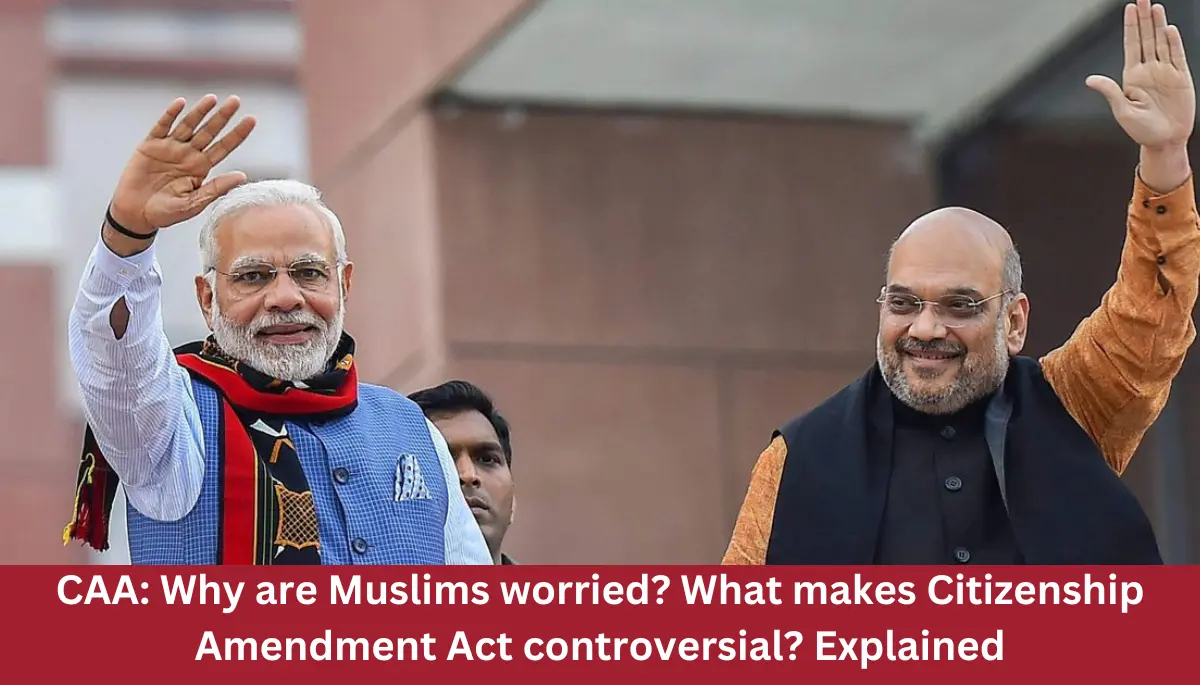

Rajdut News
Vehushka, March 16, 2024
In recent years, India has found itself embroiled in a contentious debate surrounding the Citizenship Amendment Act (CAA), a piece of legislation that has sparked widespread controversy and concern, particularly among the Muslim community. Let’s delve into the intricacies of this law, its implications, and why it has become a focal point of debate and protest across the nation.
The Citizenship Amendment Act, passed in 2019 by the Indian Parliament, aims to expedite the naturalization process for migrants belonging to several religious communities – Hindus, Parsis, Sikhs, Buddhists, Jains, and Christians – who fled persecution in neighboring Afghanistan, Bangladesh, and Pakistan before December 31, 2014. Notably, the law excludes Muslims, who form the majority in these countries.
This legislation marks a significant departure from India’s previous approach to citizenship, as it introduces religious criteria for obtaining citizenship for the first time in the country’s history. The government defends the CAA as a humanitarian gesture to shelter persecuted minorities but faces criticism for excluding Muslims from its provisions.
The implementation of the CAA was initially delayed following widespread protests that erupted across the country, resulting in casualties. Critics argue that the law undermines India’s secular principles by favoring specific religious groups and marginalizing Muslims, who constitute a significant minority within the country.
The CAA’s connection to the National Register of Citizens (NRC), a proposed registry aimed at identifying illegal immigrants, further exacerbates concerns among Muslims. While the NRC has only been implemented in the state of Assam, the government’s pledge to roll it out nationwide raises fears of potential discrimination and exclusion targeting the Muslim community.
Opponents of the CAA, including Muslims, opposition parties, and human rights groups, contend that the law violates India’s secular ethos and constitutional principles by enshrining religious discrimination in citizenship criteria. They argue that citizenship should be granted irrespective of religious affiliation and express apprehensions about the government’s intentions regarding the Muslim population.
Critics also highlight the omission of persecuted Muslim minorities, such as Ahmadis in Pakistan and Rohingyas in Myanmar, from the CAA’s provisions, raising questions about the law’s selective approach to safeguarding religious minorities. Many view the CAA as a manifestation of the ruling party’s Hindu nationalist agenda, which they fear could erode India’s secular fabric and further marginalize religious minorities, particularly Muslims.
India’s Muslim community, comprising over 200 million individuals, faces mounting anxieties amid escalating incidents of violence and discrimination. Instances of mob lynching, boycotts of Muslim businesses, and attacks on places of worship have fueled apprehensions about their safety and security under the current political climate.
Critics attribute the rise in anti-Muslim violence to the perceived silence and inaction of Prime Minister Narendra Modi’s government. Despite widespread condemnation, Modi’s administration has faced criticism for failing to address communal tensions effectively and for its alleged complicity in perpetuating a hostile environment for Muslims.
As India grapples with the ramifications of the Citizenship Amendment Act, it is imperative to uphold the nation’s foundational principles of secularism, inclusivity, and religious tolerance. While the government maintains that the CAA is a measure to protect persecuted minorities, it must address the legitimate concerns of all citizens, regardless of their religious identity. As the world watches closely, India’s commitment to upholding its secular values will be paramount in shaping its future trajectory as a diverse and inclusive democracy.
In conclusion, the controversy surrounding the Citizenship Amendment Act underscores the complex intersection of religion, politics, and citizenship rights in India, with far-reaching implications for its social fabric and democratic ethos.